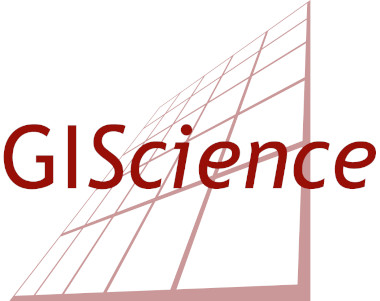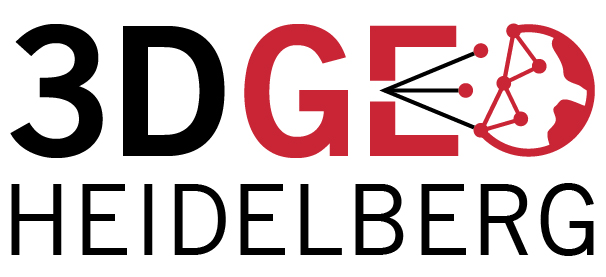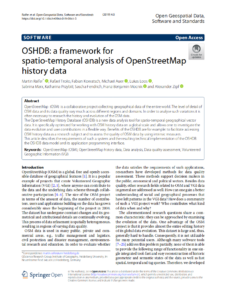The OpenStreetMap History Database (OSHDB) is what powers most of the functionality of HeiGIT’s ohsome platform. The ohsome API for example, which was often showcased here in the blog, is built on top of the OSHDB. Just recently, an open access software article about the OSHDB was published. Check it out to find out more about the conceptual and technical background behind the OSHDB!
The newest version of the OSHDB is 0.5.0 and forms an important milestone on our way to provide you with the perfect tool to analyse OSM history data. Here are the three most important highlights of this release:
- Stability and performance: The main goal was to make the OSHDB framework more stable and more performant. It can now handle the global OSM full history dataset (which is big) with ease. This allows for example everyone to explore the evolution of the OSM project, or to answer research questions about OSM history data.
- New features: There are also a couple of new features included in the new release, for example the possibility to calculate median and quantiles, a completely rewritten and much more flexible way to calculate aggregated result for arbitrary subsets of the queried OSM data including a way to aggregate results by sub-regions.
- Documentation: Last but not least, the project repository finally got a proper documentation section that explains the concepts and features of the OSHDB in detail.
Take a look at our changelog of version 0.5 to see the full list of all major changes in this version. If you’re upgrading from a previous version of the OSHDB: note that we updated some of our dependencies and that the central libary JTS is now maintained by a different company. This means that you might have to adjust import statements as explained in their JTS migration guide.
You can find the OSHDB source code as open-source under the LGPLv3 license on github. Don’t hesitate to open a ticket there if you encounter any bugs or are missing a particular feature in the OSHDB and feel free to contact us via email to info@heigit.org.
Please cite this reference paper if you are using the ohsome plattform and oshdb in particular:
Raifer, M, Troilo, R, Kowatsch, F, Auer, M, Loos, L, Marx, S, Przybill, K, Fendrich, S, Mocnik, FB & Zipf, A (2019): OSHDB: a framework for spatio-temporal analysis of OpenStreetMap history data. Open Geospatial Data, Software and Standards, https://doi.org/10.1186/s40965-019-0061-3.
Earlier work on using the platform, see e.g.:
Auer, M.; Eckle, M.; Fendrich, S.; Griesbaum, L.; Kowatsch, F.; Marx, S.; Raifer, M.; Schott, M.; Troilo, R.; Zipf, A. (2018): Towards Using the Potential of OpenStreetMap History for Disaster Activation Monitoring. ISCRAM 2018. Rochester. NY. US.



